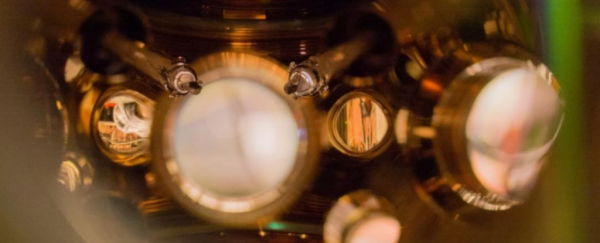Researchers in the US have given their atomic clock a few tweaks, and now that it won't lose or gain a second in 15 BILLION years, it's broken the record for the most accurate clock in the world. And not just by a little bit - it's now three times more accurate than the previous record-holder, which was itself, last year.
"Our performance means that we can measure the gravitational shift when you raise the clock just 2 centimetres [0.79 inches] on Earth's surface," one of the team, physicist Jun Ye from JILA - a joint institute of the National Institute of Standards and Technology and the University of Colorado - said in a press release.
Atomic clocks are built according to the behaviour of either strontium or caesium, by measuring their vibrational frequency as they oscillate back and forth between two different energy levels hundreds of trillions times each second. The JILA clock uses strontium atoms, and traps them inside a 30-by-30 micrometre column of 400 disc-shaped regions created by an intense laser light.
Called an optical lattice, this mechanism allows scientists to count the strontium's atom's 'ticks' - all 430 trillion of them per second - by exposing the atoms to red laser light at the exact frequency that prompts them to switch between the two energy levels.
"To make the clock more accurate (meaning that it represents the actual time that it takes a strontium atom to 'tick') and stable (meaning that its ticks are all alike), the researchers have worked to reduce the influence of heat from the clock's surrounding environment, which can affect the speed at which the atoms respond to the laser," says Rachel Feltman at The Washington Post.
The clock has been described in the latest edition of Nature Communications.
Feltman reports that the team have managed to do just that, and it's now so accurate that they're actually having trouble measuring its accuracy. "It's accurate enough that it picks up on the slight differences in the passage of time at different heights (thanks, relativity), so it raises the question of whether the whole Earth can really have one standard, super-accurate clock that speaks for us all."
Which is so deep, I think I need to go and lie down.
Source: The Washinton Post
